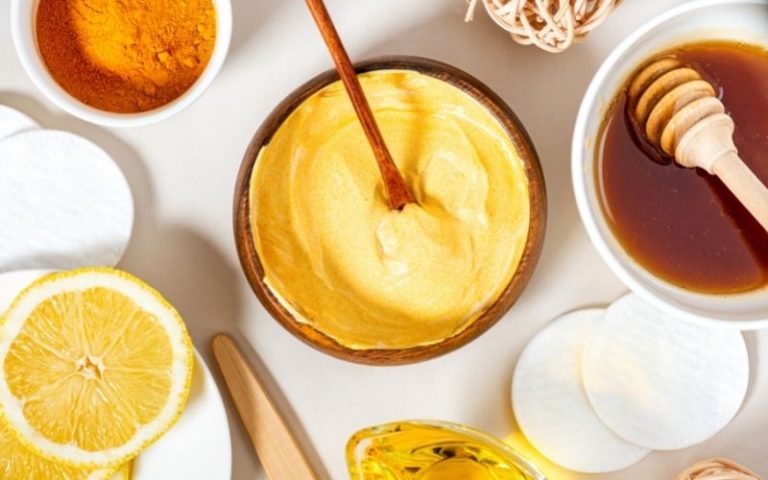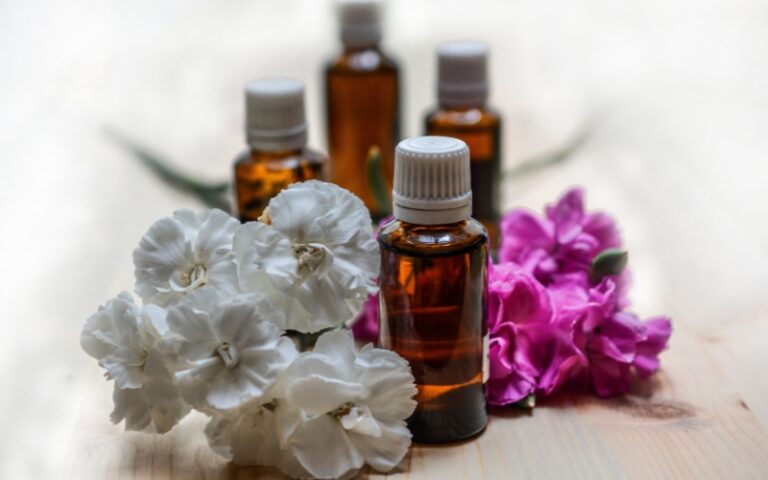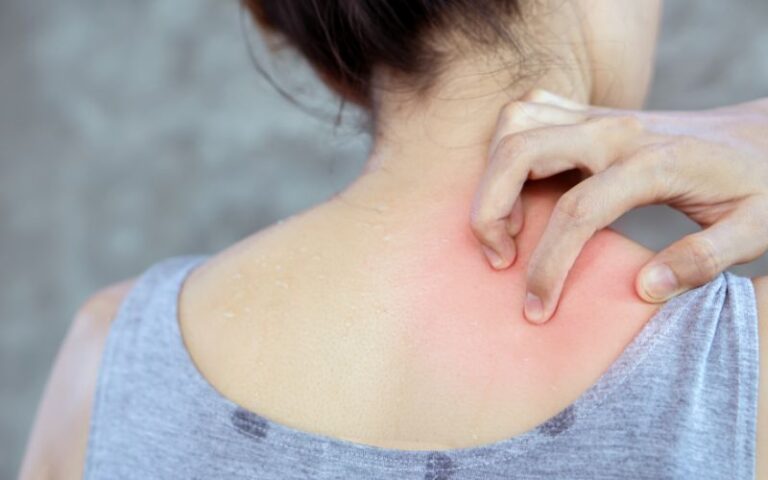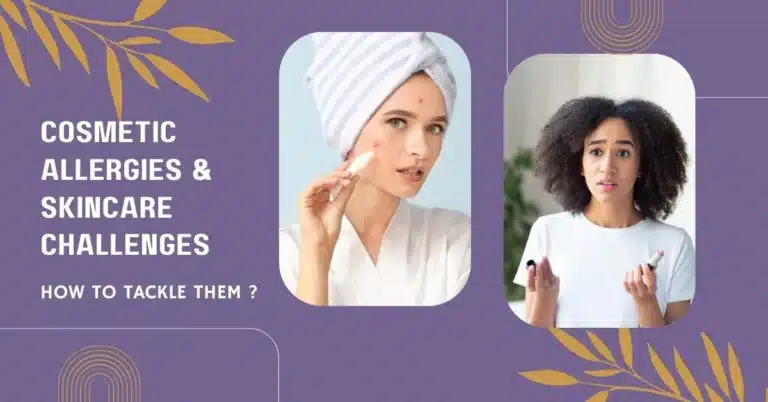Argan vs Olive Oil For Skin – This Is What The Skin Experts Think!
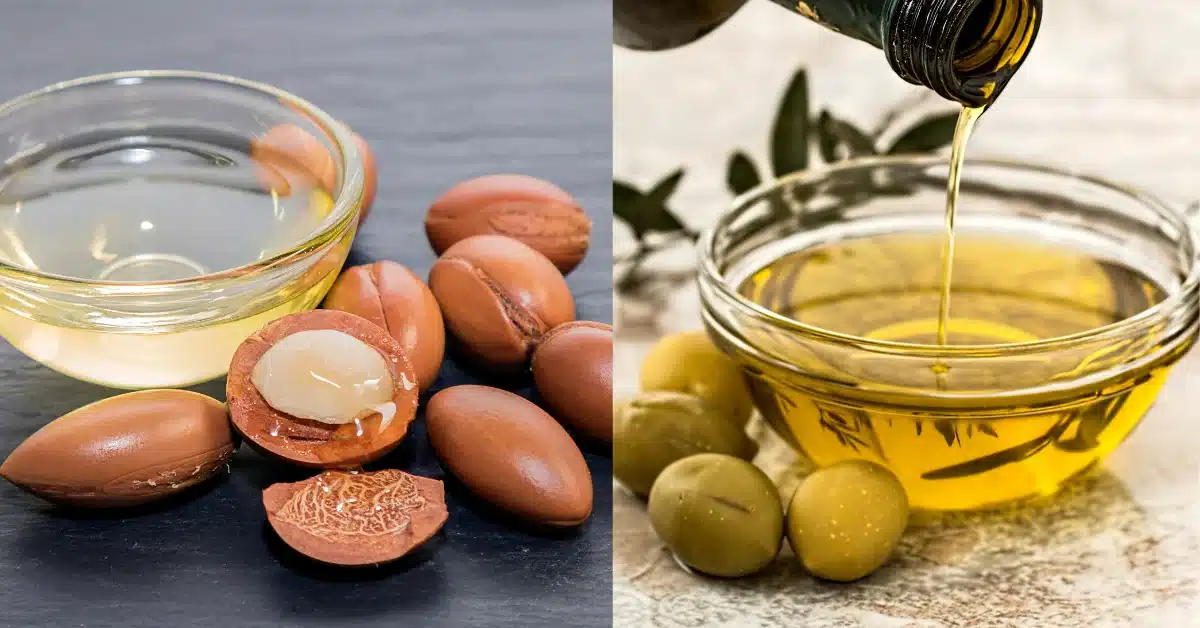
Ever found yourself in the middle of the skin care aisle, puzzled between Argan and Olive oil for your skin? You’re not alone. These two natural oils are renowned for their amazing skin benefits, but which one takes the crown? Let’s dive in and find out what the skin experts think.
Table Of Content
- Argan Oil: Liquid Gold For Your Skin
- Olive Oil: A Timeless Mediterranean Remedy
- Differences Between Argan And Olive Oils
- How To Choose The Right Oil For Your Skin Type
- Tips For Using Argan And Olive Oils In Your Skincare Routine
- DIY Skincare Recipes Using Argan And Olive Oils
- Argan And Olive Oil Products To Try
- Potential Side Effects And Precautions
- Conclusion: Which Oil Is The Game-Changer For Your Skin?
Argan Oil: Liquid Gold For Your Skin
Argan oil, often hailed to as “liquid gold,” is acquired from the kernels of the Argan tree native to Morocco. Renowned for its rich content of omega 3 and 9 fatty acids, antioxidants, and vitamin E, Argan oil has become a sought-after ingredient in the beauty industry.
Let’s explore the benefits of Argan oil for your skin.
1. Deep Moisturization and Nourishment
Argan oil is an exceptional natural moisturizer that permeates deeply into the skin, providing long-lasting hydration. It helps restore the skin’s natural barrier and locks in moisture, making it a valuable ally for dry and dehydrated skin.
2. Anti-Aging Properties
The abundance of antioxidants in Argan oil combats free radicals, thereby decreasing the signs of aging like fine lines and wrinkles. Regular use of Argan oil can improve skin elasticity, bestowing you with a more youthful and radiant complexion.
3. Acne Control
Surprisingly, Argan oil’s non-greasy texture makes it suitable for acne-prone skin. It helps regulate sebum production and has anti-inflammatory properties, which can decrease redness and inflammation associated with acne.
4. Fade Scars and Blemishes
Argan oil is known for its ability to fade scars and blemishes gradually. It aids in skin cell regeneration, helping to diminish the appearance of scars and hyperpigmentation over time.
5. Shield Skin
Argan oil contains natural antioxidants, such as ferulic acid and polyphenols, which act as a protective shield against environmental damage, such as UV rays and pollution.
Olive Oil: A Timeless Mediterranean Remedy
Olive oil, a staple of Mediterranean cuisine, has been used for centuries as a skincare remedy. It is derived from the fruits of the olive tree and is brimming with healthy fatty acids, vitamins, and antioxidants.
Let’s delve into why Olive oil is cherished by skin experts.
1. Superior Antioxidant Protection
Olive oil is abundant in antioxidants, such as polyphenols and vitamin E, which shield the skin from environmental damage and oxidative stress. This protection helps prevent premature aging and keeps your skin looking youthful.
2. Gentle Makeup Remover
Due to its gentle nature, Olive oil serves as an effective makeup remover. It effortlessly dissolves makeup, including stubborn waterproof mascara, while moisturizing the delicate skin around the eyes.
3. Improves Skin Texture
Regular application of Olive oil can lead to smoother and softer skin. It works wonders for individuals with rough or dry skin, providing a velvety touch and improving overall skin texture.
Using a small amount of olive oil as an overnight treatment can provide intense hydration and nourishment to the skin. However, it is essential to use it in moderation to avoid a greasy feeling.
4. Calming and Soothing
Olive oil’s soothing properties make it suitable for sensitive and irritated skin. It can alleviate redness and discomfort, making it an ideal choice for those with skin conditions like eczema or psoriasis.
5. Health Benefits
Apart from topical application, consuming olive oil can also offer health benefits. Its anti-inflammatory properties can help with various health conditions, including heart health and digestion.
Differences Between Argan And Olive Oils
While both Argan and Olive oils offer numerous benefits for the skin, there are some differences that make them unique.
1. Origin
- Argan oil is distilled from the kernels of the argan tree, which is native to Morocco.
- Olive oil is extracted from the fruits of the olive tree, which is primarily grown in the Mediterranean region.
2. Extraction Method
- Argan oil is traditionally extracted by hand, a labor-intensive process that involves cracking the argan nuts and extracting the kernels.
- Olive oil is typically extracted by mechanical pressing or centrifugation.
3. Composition
- Argan oil is rich in essential fatty acids, including linoleic acid and oleic acid, as well as antioxidants and vitamins.
- Olive oil is also high in monounsaturated fatty acids, particularly oleic acid, and contains antioxidants and vitamins.
4. Texture and Absorption
- Argan oil has a lightweight and non-greasy texture, allowing it to be effortlessly absorbed by the skin without leaving a residue.
- Olive oil has a thicker consistency and may leave a slightly greasy feeling on the skin.
5. Scent
- Argan oil has a subtle nutty fragrance.
- Olive oil has a distinct fruity aroma.
How To Choose The Right Oil For Your Skin Type
Choosing the right oil for your skin type is crucial to achieving optimal results. Here are some guidelines to help you make the best choice:
1. Dry and Sensitive Skin
Both Argan and Olive oils are excellent choices for dry and sensitive skin, as they provide deep hydration and nourishment. However, Argan oil may be more suitable for those with extremely dry skin, as it has higher vitamin E content.
2. Oily and Acne-Prone Skin
While it may seem counterintuitive, using oil on oily and acne-prone skin can actually help balance oil production and prevent breakouts. Argan oil is a great option for acne-prone skin, as it has anti-inflammatory and antibacterial properties. Olive oil can also be used, but it may be better suited for those with mild to moderate acne.
3. Combination Skin
If you have combination skin, you can use both Argan and Olive oils. Apply Argan oil to dry areas of your face and Olive oil to oily areas, or use a combination of the two oils.
4. Mature Skin
Both Argan and Olive oils are beneficial for mature skin, as they help to ameliorate elasticity and reduce the appearance of wrinkles. However, Argan oil may be more suitable for those looking for a lightweight and fast-absorbing option.
5. Skin Brightening
Olive oil’s skin-brightening properties make it an excellent choice for those looking to achieve a natural glow and even skin tone.
6. Overnight Application
If you prefer using oil overnight, both Argan and Olive Oil can be used in small amounts. However, Olive Oil’s lighter texture might make it more comfortable for overnight use.
Tips For Using Argan And Olive Oils In Your Skincare Routine
To reap the full benefits of Argan and Olive oils, here are some tips for incorporating them into your skincare routine:
- Cleansing: Use Argan or Olive oil as a gentle cleanser to eliminate dirt, makeup, and impurities. Massage a small amount of oil onto your face, then rinse with warm water. This method, known as the oil cleansing method, helps to cleanse the skin without depriving it of its natural oils.
- Moisturizing: Apply a few drops of Argan or Olive oil onto clean, damp skin to lock in moisture and nourish the skin. Gently massage the oil onto your face and neck using upward motions.
- Mixing with Other Products: You can enhance the benefits of your skincare products by adding a few drops of Argan or Olive oil. Mix a drop or two with your moisturizer, serum, or foundation for added hydration and a radiant glow.
- Haircare: Argan and Olive oils are not just for the skin; they can also work wonders for your hair. Apply a small amount of oil to the ends of your hair to tame frizz, add shine, and protect against heat damage.
DIY Skincare Recipes Using Argan And Olive Oils
If you’re feeling adventurous, here are some simple DIY skincare recipes that you can try using Argan and Olive oils:
Hydrating Face Mask
Mix one tablespoon of Argan oil with one tablespoon of honey and two tablespoons of mashed avocado. Apply the mixture to your face, leave it on for 15-20 minutes, then rinse with warm water. This mask will provide deep hydration and nourishment to your skin.
Exfoliating Body Scrub
Mix 1/4 cup of Olive oil with 1/2 cup of brown sugar and a few drops of your favorite essential oil. Gently massage the scrub onto your body in circular motions, then rinse off. This scrub will slough away dead skin cells and leave your skin silky smooth.
Nourishing Hair Mask
Blend two tablespoons of Argan oil with one tablespoon of coconut oil and one tablespoon of honey. Gently apply the blend to damp hair, paying special attention to the ends. Leave it on for 20 to 30 minutes, then shampoo and condition as usual. This mask will moisturize and revive dry, damaged hair.
Argan And Olive Oil Products To Try
If you prefer ready-made skincare products, here are some Argan and Olive oil products that you can add to your beauty arsenal:
Argan Oil
Look for pure, cold-pressed Argan oil that is organic and ethically sourced.
Some popular brands include:
- Josie Maran Argan Oil
- The Ordinary 100% Organic Cold-Pressed Moroccan Argan Oil
- Acure The Essentials Argan Oil
Olive Oil
Opt for extra virgin, cold-pressed Olive oil that is of high quality.
Some reputable brands include:
- La Tourangelle Organic Extra Virgin Olive Oil
- Colavita Extra Virgin Olive Oil
- California Olive Ranch Extra Virgin Olive Oil
Skincare Products with Argan or Olive Oil
Many skincare brands incorporate Argan or Olive oil into their products. Look for cleansers, moisturizers, serums, and masks that feature these oils as key ingredients.
Potential Side Effects And Precautions
While Argan and Olive oils are generally safe for most people, it’s important to be mindful of potential side effects and adopt necessary precautions:
- Allergic Reactions: Some people may be allergic to Argan or Olive oil. If you experience any signs of an allergic reaction, such as itching, redness, or swelling, discontinue use immediately.
- Clogging Pores: Although Argan and Olive oils are non-comedogenic, they can still clog pores if applied in excess. Use a small amount of oil and monitor how your skin responds.
- Quality and Purity: Ensure that you are using high-quality, pure oils to avoid any potential contaminants or adulteration. Look for oils that are organic, cold-pressed, and free from additives.
- Sun Sensitivity: Both Argan and Olive oils may increase your skin’s sensitivity to the sun. If you plan to spend time outdoors, be sure to apply sunscreen and take necessary sun protection measures.
Conclusion: Which Oil Is The Game-Changer For Your Skin?
After exploring the benefits, differences, and tips for using Argan and Olive oils in your skincare routine, it’s time to answer the burning question: which oil is the game-changer for your skin?
The truth is both Argan and Olive oils offer unique benefits and can be game-changers for different skin types and concerns. If you have dry or sensitive skin, Argan oil may be your go-to oil, thanks to its nourishing and moisturizing properties. On the other hand, if you have oily or acne-prone skin, Olive oil can help balance oil production and keep breakouts at bay. Ultimately, the choice between Argan and Olive oil comes down to personal preference and how your skin responds to each oil.
Now armed with knowledge about these oils and their skincare benefits, you can confidently choose the oil that will revolutionize your skin. Whether you decide to go for the liquid gold of Argan oil or the Mediterranean magic of Olive oil, incorporating these natural oils into your skincare routine will undoubtedly elevate your skincare game.
It’s time to discover the key to youthful skin, as the magic of natural anti-aging ingredients and enriching natural oils unveil your inner beauty in all its splendor.
FAQs
Q: Can I use Argan and Olive oil together?
A: Yes, you can! Blending a few drops of Argan oil with Olive oil can create a powerful blend that combines the benefits of both oils.
Q: Which oil is more suitable for hair care?
A: Argan oil is renowned for its hair-nourishing properties and is often preferred for hair care routines.
Q: Can olive oil be used as a sunscreen?
A: While Olive oil has some natural sun protection properties, it is not a substitute for proper sunscreen. Always use sunscreen with adequate SPF to protect your skin from harmful UV rays.
Q: Is Argan oil safe for sensitive skin?
A: Yes, Argan oil is generally safe for sensitive skin, but it’s always best to perform a patch test before applying it to larger areas.
Q: Can olive oil replace a moisturizer?
A: Olive oil can serve as a temporary moisturizer, but it may not be sufficient for long-term hydration.
Q: Are these oils suitable for all skin types?
A: Both oils are suitable for most skin types, but individual reactions may vary. It’s essential to test the oil on a small patch of skin before incorporating it into your regular routine.
Q: Is Argan oil suitable for oily skin?
A: Yes, Argan oil is non-comedogenic and light, making it suitable for oily skin types.
Q: Can Olive oil clog pores?
A: While Olive oil has a higher chance of clogging pores, it depends on individual skin type and how it’s used.
Q: Which oil is better for reducing wrinkles?
A: Argan oil’s Vitamin E content and antioxidants make it more effective in reducing wrinkles.
Q: Can I use Olive oil as a makeup remover?
A: Yes, Olive oil can effectively remove makeup, including waterproof products.
References
https://www.vedaoils.com/blogs/essentialoils/olive-oil-vs-argan-oil
https://www.tunestatus.com/argan-vs-olive-oil-which-better-skin/
https://vivifytribe.com/argan-vs-olive-oil-for-skin/
https://prettyandstory.com/argan-vs-olive-oil-for-skin/
https://oliveoilblogger.com/argan-vs-olive-oil-for-skin-why-olive-oil-is-better

